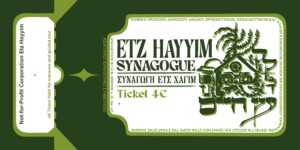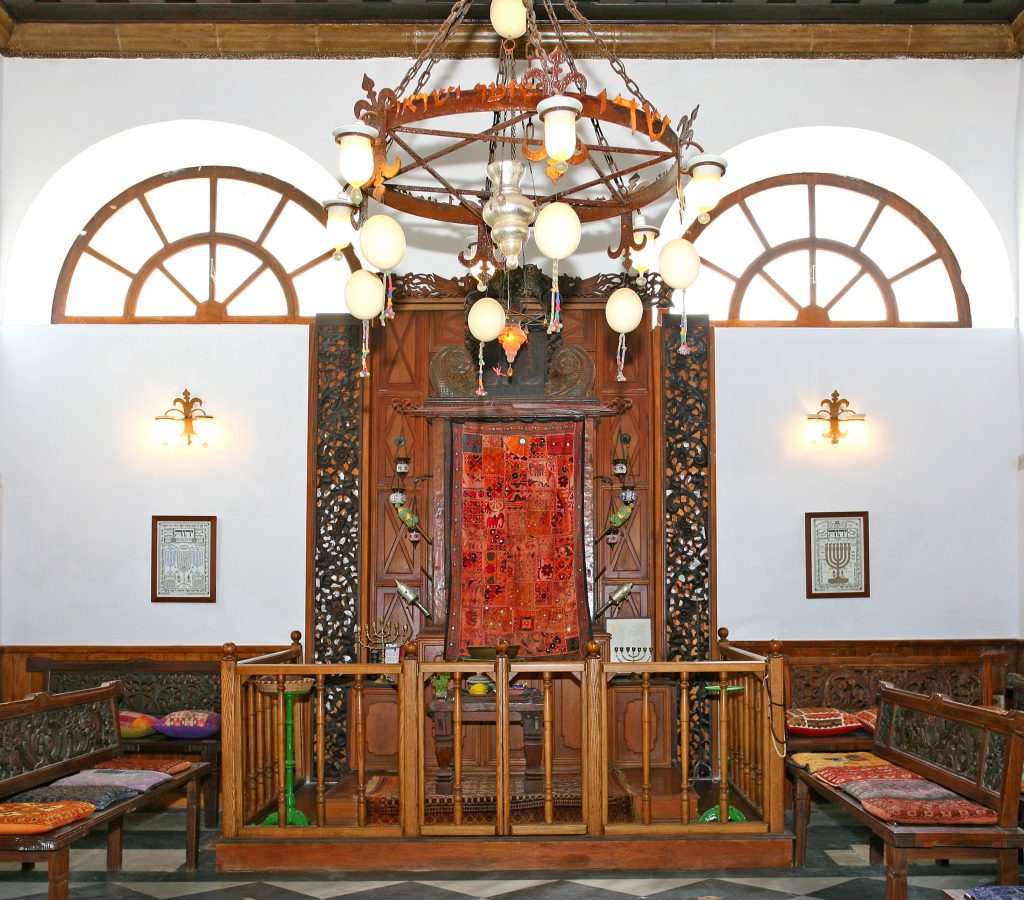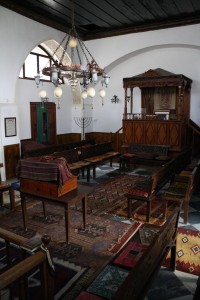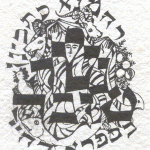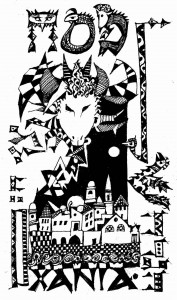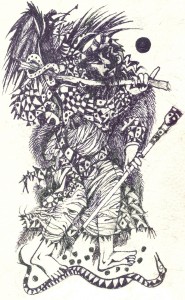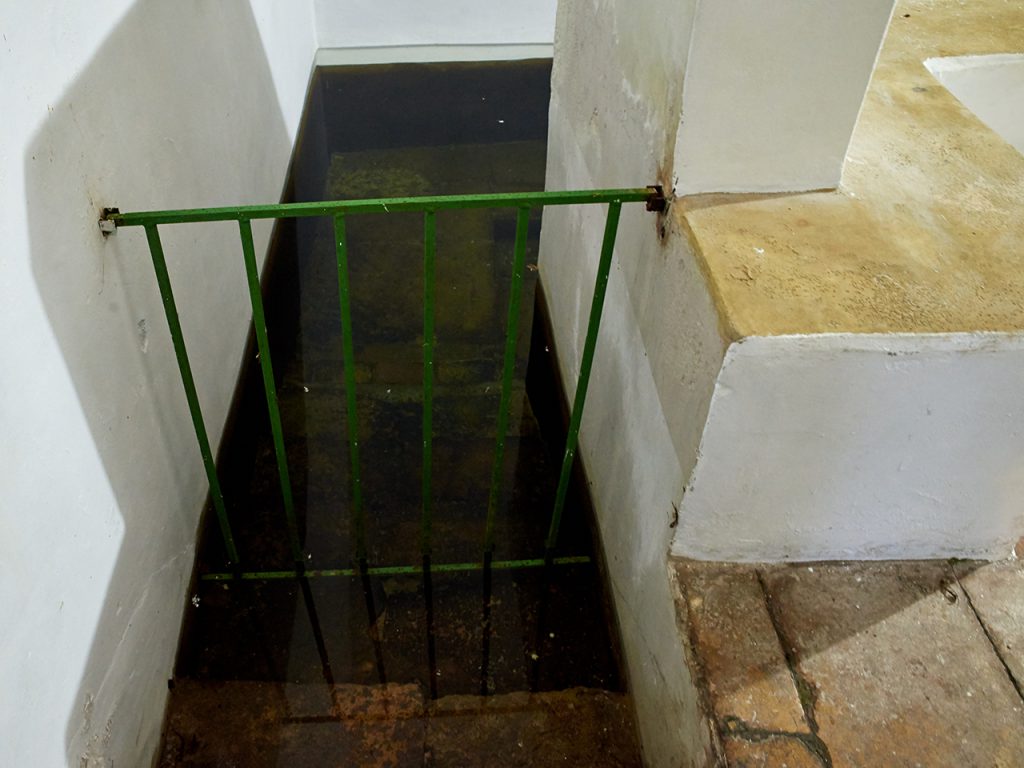Please see our calendar of events for the current schedule of Jewish festivals/holidays.
.
Events at Etz Hayyim Synagogue are organised according to the Jewish liturgical year, but also includes occasional concerts and lectures. For our services, including Kabbalat Shabbat on Friday evenings, we do not always have a minyan (a quorum of ten men over the age of 13 required for traditional Jewish public worship). Nevertheless, we still hold services regardless of whether we have a minyan or not and we welcome people of all faiths who want to participate or to pray at any time during our opening hours. We can provide upon request sidurim (daily prayer books) according to the Sephardi and Mizrahi traditions and mahzorim (festival prayer books) for all of the major Jewish festivals, together with talleths (prayer shawls) and tephillin (phylacteries containing scrolls of parchment with verses from the Torah). We also have prayer booklets that are based on Conservative, Reform and Reconstructionist texts that permit active participation for most Jews and even non-Jews. Some of the annual Jewish festivals that Etz Hayyim observes include:
.
Rosh Hashanah (New Year)
Our New Year at Etz Hayyim begins with Arvith (evening) prayers in the synagogue after which we assemble in a nearby restaurant for a vegetarian communal meal that includes the Greek Jewish custom of pomegranates and apples soaked in honey, followed by baked fish, among other delicacies.
.
Yom Kippur (Day of Atonement)
We begin with the Kol Nidre service accompanying prayers. The following morning, the service is led by when of our Visiting Rabbis and in the late afternoon, we usually read or listen to the reading of the traditional Cretan text of the Book of Jonah in its Greek version, but written in Hebrew. For Neilah, we assemble again for the traditional Sephardi service followed by the breaking of the Fast in the northern courtyard after the blowing of the shofar (ram’s horn). On occasion, a communal meal is served afterwards.
.
Sukkot (Feast of Tabernacles)
In keeping with admonitions, community members together build and decorate the Sukkah (a temporary hut constructed for use during the week-long festival of Sukkot) on the day after Yom Kippur in the northern courtyard of Etz Hayyim. On the eve of Sukkot, we bless the Sukkah and then hold a banquet meal. For all of the subsequent days of Sukkot, the lulav (closed frond of a date palm tree) and ethrog (citron) are placed on a table in the Sukkah, along with bowls of fruits and nuts so that visitors can eat and recite the blessings for the feast. Some observant visitors bring prepared picnic lunches that are eaten in the Sukkah as well.
.
Pesah (Passover)
Pesah is a major holiday for most Jews and often, we invite our non-Jewish friends to join with us to hear the story of the liberation of the Jews from slavery in Egypt and the ‘passing over’ of forces of destruction. We prepare early for this festival by acquiring matsoth (unleavened flatbread) and kosher wine from Athens and Israel to be used during the seder meals, but also for the eight days of the festival. The Mikveh is cleaned specifically beforehand to allow for those individuals who wish to use it for the ritual purification of cooking and eating utensils. The traditional search for hametz (leavened food) takes place in the first afternoon of the festival and the desiccated lulav that has been kept from Sukkot is used as a broom to gather it together and then burnt it, along with the symbolic hametz in front of the synagogue’s entrance. Led by one of our Visiting Rabbis, Arvit prayers are recited in the synagogue followed by the first communal Passover seder meal at a nearby restaurant where the Haggadah (a Jewish text that sets forth the order of the Passover seder meal) is read before we eat altogether. Etz Hayyim has produced its own Cretan Haggadah, written and illustrated by Nikos Stavroulakis and available at the synagogue against donation. The seder meal is usually vegetarian and consists of dishes combining both Romaniote or Sephardi traditions in Greece.
.
The Minor Festivals of Tu B’shvat, Purim and Hanukah
We also celebrate the festivals of Tu B’shvat, Purim and Hanukah with advanced notice provided for the times when the lighting of the Hanukah takes place and for the recitation of the Megillah Esther for Purim, for example. For Tu B’ Shvat, community members come together over the festive table with a potted tree, wine, as well as nuts, figs and dates and the traditional Assoureh (marinated fruits, nuts, beans, wheat kernels, liberally sprinkled with pomegranate seeds). Usually after the recitation of the blessings at this table, we hold a banquet dinner.
.
Weddings and Bar/Bat Mitzvahs
Etz Hayyim has hosted a number of weddings and Bar/Bat Mitzvahs over the years. These weddings at the synagogue always follow a valid secular wedding beforehand; the betrothal act and the reading of a ketubah (Jewish marriage contract) is then performed by one of our Visiting Rabbis in the synagogue. For each wedding, the recitation of the Seven Blessings over the bride and groom is usually performed by seven close friends of the betrothed couple under the chuppah (a canopy under which a Jewish couple stand during the wedding ceremony). At Etz Hayyim, we have revived the ancient Judaeo-Greek custom of having the bride and groom wear crowns made of flowers and because the synagogue is located near the sea, it is usually customary for bride to go swimming, rather than to use our Mikveh prior to the wedding.
.
For couples interested in hosting their wedding at Etz Hayyim, or for Bar/Bat Mitzvahs, please contact the synagogue directly for any enquiries. We can also advise on the legal requirements for getting married in Greece, as well as wedding planning.


